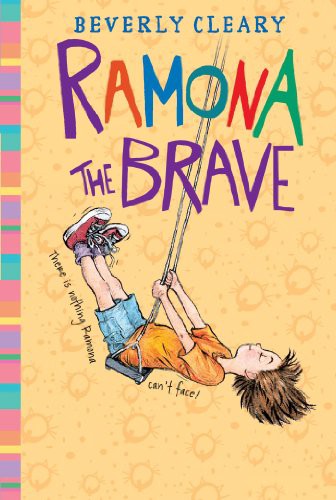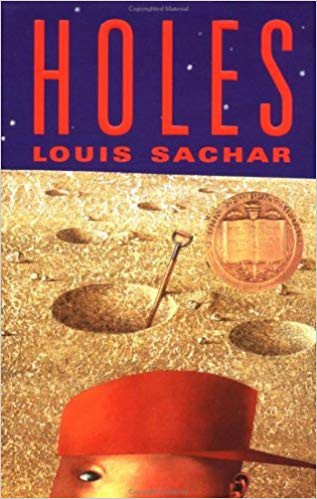Reading Lists
Your Favorite Children’s Book Heroes: Where Are They Now?
Adults have failed us, so here are the children we’d like to imagine growing up to do a better job

For the 30th birthday of the Roald Dahl novel Matilda, original illustrator Quentin Blake imagined some possible futures for its precocious heroine: astrophysicist, world traveler, librarian. That got us wondering where the rest of our childhood favorites ended up. Now, more than ever, we need to know that Ramona Quimby and the kid from The Snowy Day turned out okay.
To live in the modern world is to learn that if you check the news before you get out of bed in the morning, you may fail to understand what the point is in leaving your bed after all. The adults left in the room are the courageous ones, who are are being mocked, trivialized, and abandoned by the cowardly, powerful few. It’s times like these when we need to remember that the future is not our own, but that of our children. So we thought it might be time to remember the children who inspired us to grow up and seek change. (Note: we’ve taken the liberty of imaging these characters into our own time, even if they come from centuries ago.) Here are seven characters we’d like to imagine growing up to do a better job than we’re doing right now.

Won-a-pa-lei (Karana), from Island of Blue Dolphins by Scott O’Dell
After abandoning a Ph.D. in anthropology, Karana met her partner and the two women returned to the island where Karana was born. Karana and her wife run a “survival camp” for women who have experienced trauma — particularly domestic trauma and migrational trauma — by empowering them to see the power in their capacity to survive without the patriarchal systems who abuse them. Her partner, an acclaimed psychologist, offers counseling and support for these same women. The camp is booked through the next three years.

Fern from Charlotte’s Web by E.B. White
Fern now runs an international non-profit organization for women farmers. At a young age, she learned how quickly men in power are willing to sacrifice the life of the terrific young, and how often women are assigned the duty of taking care of the defenseless. After observing Charlotte’s remarkable marketing skills, Fern was inspired to change the world. Her organization is committed to fostering community for women farmers, providing micro-loans to challenge the international wealth-gap, and provide social platforms for women farmers to connect with each other to challenge the sexist stories and celebrate the women who aren’t afraid to get their hands dirty. She is a vegetarian and still hates her dad.

Ramona Quimby from the Ramona series by Beverly Cleary
Ramona Quimby is a media personality who isn’t afraid to live her best life. After dealing with the guilt and frustration of being a “messy girl” she now has her own late-night show wherein she celebrates literal and figurative messes. Her rise to stardom started after an essay she wrote “In Defense of the Stain On My Shirt” about the sexist demands for women to remain “clean” and “pure,” went viral. She’s inspired girls everywhere to throw out their stain sticks and embrace getting into trouble.

Stanley and Zero from Holes by Louis Sachar
Stanley and Zero have never really left each other’s side ever since the curse was lifted. Though the two lived seemingly happily-ever after, they continued to reflect on the prison-industrial complex — the structural inequalities and inherent racism represented in the breakdown of the US adult population in prison (where black adults represented 12% of the U.S. adult population but 33% of the sentenced prison population, and Hispanic adults represented 16% of the adult population and 23% of inmates, according to PEW) — and decided to do something about it. After studying hard in law school (and without using said hard work as an alibi for sexual assault accusations), the two are now defense attorneys, eager to reform the system from the inside. Zero’s book, The Hole Becomes a Grave: The Pitfalls of the Prison Industrial Complex by Hector Zeroni, J.D., will be out next fall.

Harriet Welsch from Harriet the Spy by Louise Fitzhugh
Harriet runs a cybersecurity firm for journalists. She opens client pitches by recounting her experience at a young age with a special marble composition book that got into the wrong hands. It was the beginning of her education in journalistic integrity. She believes that confidentiality is crucial for those interested in documenting the realities of the world and uncovering dangerous truths that the powerful few would prefer remain hidden.

Peter from The Snowy Day by Ezra Jack Keats
Peter is a painter and professor living in Brooklyn. As the earth continues to warm, that first snowfall has haunted him. While Peter completed an MFA in poetry at the New School and remains a tenured professor specializing in Haiku, his career as a painter started only recently, after a day in February when the temperature hit 85 degrees. Words failed him, but the feeling of that fleeting snowflake on his nose, the blanket of snow on his street, grew brighter in his mind’s eye. He applied his mind to the canvas. Peter’s painting now focuses on examining the effects of climate change in parts of the world that go “unseen.” He is interested in creating visual representations of the long-term devastations of climate change.

The Baudelaire Children from A Series of Unfortunate Events by Lemony Snicket
After finally obtaining their family’s fortune, the Baudelaire children decided to invest in a school for children misplaced and traumatized by the government. Violet, with her own independently successful career as an astrophysicist, spends some of her time partnering with education specialists to create programming for young girls in STEM. Klaus, now happily married to his partner Jerome, runs a program for the boys in the school, offering early sex education with special instruction on dealing with toxic masculinity. He runs the after-school book club and personally hand-picked every book in the library. Sunny learned at an early age what it meant to be understood, and now runs the language program and the self-defense program. All three Baudelaires are active in the adoption community and spend their weekends with children in the foster-care system. They are developing a campaign for reforming youth services.








